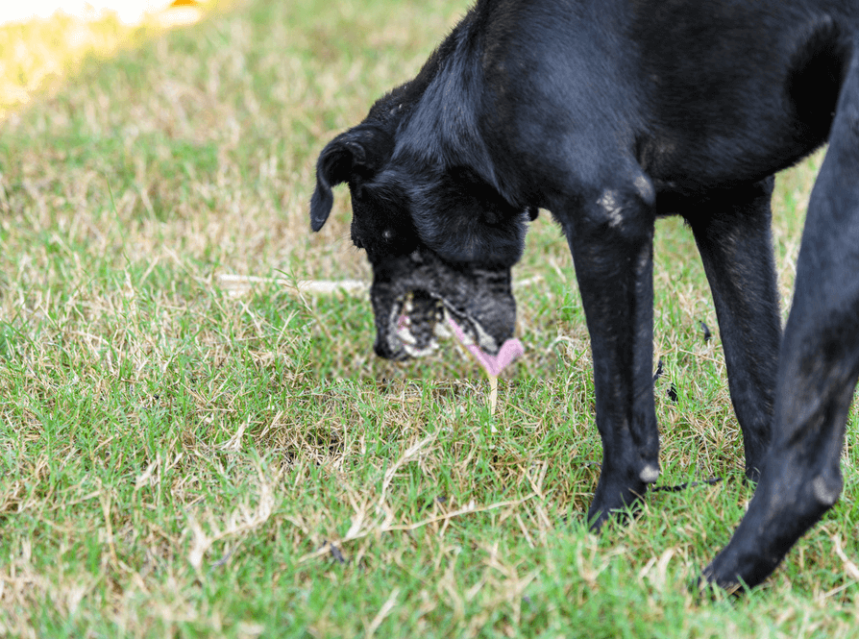

These are life-threatening conditions that require veterinary attention. Dogs, especially puppies, that regurgitate on a regular basis may be suffering from a dilated esophagus (megaesophagus) or a stricture in the esophagus (persistent right aortic arch). This can be due to eating too fast, eating too much or being overly excited right before or after eating. Your dog will most often regurgitate soon after a meal. You can tell the difference between vomiting and regurgitation since there is no abdominal heaving when a dog regurgitates. This means the food never made it into the stomach.

Regurgitation is a mild ejection of food from the dog’s esophagus or throat. Excessive drinking after vomiting can lead to more vomiting, so it is best to restrict water intake to small amounts at a time or offer ice cubes instead. The fluid lost during vomiting episodes may cause dehydration, and your dog will crave water. Right before vomiting, the dog may show signs of nausea, such as drooling, licking the lips and swallowing excessively. The stomach acid gives the vomit a sour smell. Following a meal, partially digested dog food will come up. On an empty stomach, the vomit may contain yellow bile. When a dog vomits, the contents of the stomach are forcibly ejected. The treatments for the two conditions are different. In most cases, vomiting is more of a concern than regurgitation. The first thing to determine is whether your dog is vomiting or regurgitating. So, let’s discuss how can you tell if the vomiting is a problem. Since they will eat almost anything, the ability to vomit readily is a built-in defense mechanism to help them eliminate most undigestible items. The reason may be simple and easy to resolve or it may be the sign of a deadly illness, surgical emergency or anything in between.ĭogs vomit for many reasons. As a veterinarian, dogs that present with a history of vomiting are always a cause for concern. It is a sound we all know too well and hate to hear. Good when treated early and appropriately.There is nothing that gets a dog owner moving quite like the sound of a dog about to vomit. In certain cases other drugs such as antibiotics may be necessary. Treatment:Īnti-nausea and anti-vomiting medications, withholding food or giving only easily digestible diets, IV fluids, monitoring of blood chemistry panels and in-hospital care. Signs:ĭelayed onset vomiting (1-4 days after fatty meal ingestion), abdominal pain, diarrhea (+/- blood), reduced appetite and lethargy. Certain breeds, miniature Schnauzers in particular, are more likely to develop pancreatitis than other breeds. When in doubt, don’t let your pet get any table food! Threat to pets:įatty foods such as butter, oils, meat drippings/grease, chocolate and meat scraps may cause pancreatitis (inflammation of the pancreas) when ingested, especially by dogs.

Xylitol results in an acute drop in blood sugar and even liver failure at high doses, while grapes and raisins can result in severe, fatal acute kidney failure. Desserts made with xylitol, a natural sugar-free sweetener, or foods containing grapes or raisins can also result in toxicity. Other table food like corn-on-the-cob can result in a severe foreign body in your dog’s intestines, resulting in projectile vomiting, diarrhea, and may require an expensive intestinal surgery. While there’s not a “toxicity” issue from fatty table foods (such as bacon, gravy, turkey skin, grizzle, etc.), it can result in a gastroenteritis (such as a mild vomiting or diarrhea) to a severe, fatal pancreatitis. While you may think you are “loving” your dog by giving him table scraps from Thanksgiving dinner, it could be very unsafe for your pet.


 0 kommentar(er)
0 kommentar(er)
